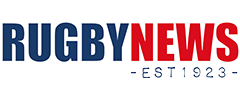
Allan Alaalatoa living up to the family name
| Apr 21 2016
Considering Allan Alaalatoa's father was a Samoan international and his brother played with the Waratahs and now the Crusaders, it's no surprise to find the 22-year old on his feet in Canberra. Rugby News and RUPA caught up with Alaalatoa this week.
You come from a talented rugby family. Was there ever any pressure or an expectation that you become a professional rugby player as well?
I wouldn't say that there was pressure to play rugby. I was fortunate that my parents supported me regardless of what I did. Our number one rule in the house was always “education first”. My old man always pressured me to get my education because he knew that it was easy for me to play rugby, but quite hard for me to study so he always pushed me in that area.
In terms of rugby, how much have you learnt from your father and brother?
I’ve learnt a lot from my old man. He played in a professional environment with Manu Samoa at the 1991 World Cup so growing up, I would always ask him for tips and




